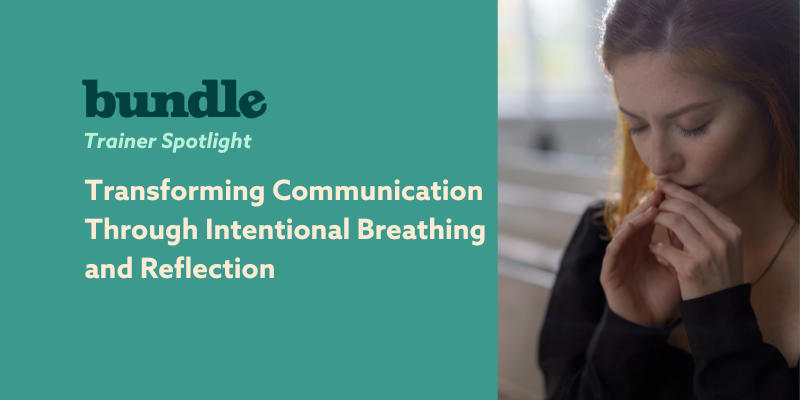Whether your office is remote, in-person, or hybrid, a vibrant and positive workplace culture is essential to a successful work environment. One of the most effective ways to cultivate this culture is through team-building exercises. These activities not only enhance teamwork and collaboration but also boost employee morale and overall job satisfaction.
Team building is a method or exercise that motivates a group of people to work collaboratively. Whether it's a game of trivia, community service, or a company retreat or picnic, there are many ways to bond employees. Explore seven team-building exercises that may benefit your office.
Why Are Team-Building Exercises Important?
Hiring qualified employees won't build a strong team on its own — you'll need to connect workers through team-building exercises. These provide a variety of benefits for businesses, like encouraging teamwork, boosting employee motivation, improving productivity, and building trust and respect among workers.
If you want to build a stronger unit of employees within the workplace, they need to connect outside of the office, as well. Team-building exercises should take place in a non-work environment, whether it's in-person or virtual.
Fun Team-Building Exercises for Work
Seven exercises that encourage communication and teamwork while allowing employees to have fun:
1. Office Trivia
A fun and flexible team-building option, office trivia is suitable for any size team and work environment. Start by crafting a list of trivia questions relevant to your workplace and write them on index cards. Some examples are:
- How many people are in the accounting department?
- What brand is our computer monitors?
- What does the poster in the breakroom say?
- What is the most common birth month among our employees?
- Name five snacks in the breakroom's vending machine.
Ask these questions and have the whole group participate. Whoever has the most correct answers at the end wins the game. To make it more engaging, you can even divide employees into teams and add a buzzer for each question.
Office trivia is an effective way to test your employees' observational skills, have fun, and encourage team bonding. You can even mix up the game with trivia themed around the seasons or holidays, history, or pop culture. Whether you host the game in the conference room or virtually, your employees are sure to engage and have a good time.
2. Community Service
Community service provides valuable benefits that employees can apply to the workplace. These skills include teamwork, problem-solving, communication, task management, organization, and project planning. If you need volunteering ideas, here are some ways your team can help the community:
- Assembling care packages
- Cleaning up a local park, forest, road, beach, or another public space
- Hosting a canned food drive
- Sponsoring a local youth sports team
- Growing a community garden
3. Two Truths and a Lie
Two truths and a lie is a game that stimulates conversation, allowing employees to learn new facts about each other. Start by having each worker write down two truths and one lie about themselves on a small piece of paper.
Once everyone has completed this step, have each person read their three statements to the entire group. Then, other participants will vote on which statement they think is the lie. After everyone has voted, have the employee reveal the correct answer and give other participants the chance to ask any follow-up questions.
To make the game more competitive, you can reward points for each lie detected and for each lie that stumped other players. This game encourages communication among workers and allows them to get to know each other better.
4. Classification Game
If you need a quick and simple icebreaker for the office, the classification game is a fun solution. Before splitting the group into teams of four, explain to them the concept of “pigeon-holing.” This means unfairly stereotyping or assuming something about another person. Make it clear that this type of classification is both unhelpfully judgmental and subjective.
From there, have players introduce themselves to their team members, briefly discussing some of their interests, likes, and dislikes. After these introductions, explain to the groups that the objective is to discover how they should describe themselves as a team. They should pinpoint two or three subgroups with criteria that contain no prejudicial or negative judgments.
Some examples of these subgroups may include morning people and night owls, coffee drinkers, pineapple pizza lovers, and so on. The classification game allows coworkers to get to know each other and consider each others' interests.
5. Puzzles
A jigsaw puzzle can be physical pieces or a digital puzzle. Having your workers complete a puzzle challenges their observational skills, concentration, and creativity.
To make things more fun and challenging, set a timer and see if they can complete the puzzle before the deadline. Or, you can split the team into two and have each one complete a different puzzle, then see who finishes first. A puzzle is an effective way to encourage communication and teamwork among employees as they work toward a common goal.
Your puzzle could also take the form of a mystery to solve. Using deduction and problem-solving skills, employees can work in teams, brainstorming possible answers to a murder mystery or other puzzles.
6. Escape Room
An escape room is a strategic puzzle-themed event where a group works together to break out of a scenario. It often includes riddles and hidden clues that players work together to solve in a specific amount of time.
This exercise encourages key team-building skills like communication, stamina, collaboration, and problem-solving. If your workers are up for the challenge, organize an escape room that tests their responses to high-stakes situations.
7. Back of the Napkin
To play this game, start by brainstorming a variety of hypothetical open-ended problems. These can be relevant to the workplace or another topic. Divide participants into teams of two to four players, then give each team a pen and folded napkin. Have each team draw a solution to each problem on the napkin with a sketch, chart, or graph.
Evaluate all solutions and select the best one. You can even offer a prize to the winning team as an incentive. This fun exercise requires teams to collaborate and solve problems creatively, promoting both teamwork and outside-the-box thinking.
What if we told you there's a way to take your team-building efforts to the next level?
While team-building exercises are fantastic for fostering camaraderie and communication, individual skill development is crucial for long-term growth and success. Bundles' 1:1 solution addresses this critical need by providing your employees with Personalized learning paths that target their specific skill gaps.
Here's how Bundles solution aligns with your team-building efforts:
- Stronger Teams are Built on Strong Individuals: Team-building exercises are a fantastic way to break down barriers and build connections. But a truly thriving team culture needs employees who are confident and skilled in their individual roles. Bundles' 1:1 Skill Development personalizes learning paths to close skill gaps and empower each team member.
-
Culture of Learning: When employees see the organization investing in their professional growth, it fosters a culture of continuous learning. This, in turn, strengthens collaboration and innovation – key ingredients for a thriving workplace culture.
-
Beyond "Culture Exercises": Team-building exercises are a great start, but Bundles goes beyond one-off activities. We offer ongoing, personalized learning that addresses the specific needs of your team, ensuring your culture of collaboration is built on a foundation of strong individual skillsets.
Ready to take your workplace culture to the next level?
Bundles' 1:1 Skill Development can help. Our comprehensive skill development solution is designed to cultivate a culture of continuous growth and collaboration.
Speak with a learning expert today and let's build a stronger, more successful workplace together! Get started.
Meet Bundle: Bundle stands out as the premier 1:1 live skills development solution, dedicated to human-centric skills. We curate and deliver live content, facilitated by trained experts, designed to empower skill growth and enhance performance.




